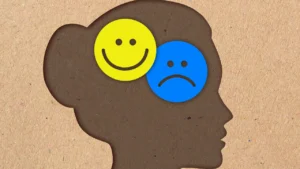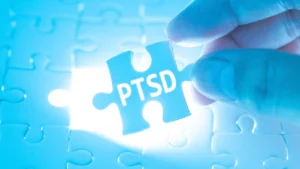Grief consists of emotions, feelings, thoughts, and behaviors that can make it challenging to move past the loss of something or someone you love. Prolonged grief can lead to worsening mental or physical health symptoms. However, treatment like grief counseling is available at any stage of the grieving process.
Therapy.com is user supported. We receive a commission fee from purchases made through BetterHelp links.
Learn More
Signs and Symptoms of Grief
Losing someone or something you love inevitably produces a grief response which can include varying thoughts, feelings, and physical and behavioral reactions. Grief is a normal process of coping with a life-changing event like loss.
Experiences that can lead to grief include not only the death of a loved one, but also other forms of loss such as losing your home and belongings in a natural disaster, losing a losing a relationship to a breakup, separation, or divorce, losing a job and financial security, and losing your health due to an injury or illness.
No two people grieve in exactly the same way. For some, culture and religion play a role in how they grieve.
Rituals like funerals, chanting, meditating, or holding celebrations vary by culture but all such rituals are designed to help the bereaved through the grieving process.
Some cultures allow grieving rituals to occur for days or weeks, and others a minimal amount of time. Cremations and burials also vary among cultures. However, the emotions that accompany grief are largely universal and are shared across cultures.
Feelings
If you experience a significant loss, whether of a loved one, a career, a home, or your health, you’re likely to experience a host of emotions. These feelings can be unpredictable, conflicting, and intense. They may include:
- Shock
- Anger
- Guilt
- Denial
- Depression
You may cry at times for no apparent reason or you may feel irritable and anxious. You may also experience low energy and a flattening of your emotions as your subconscious endeavors to process your loss.
Both depression and anxiety are to be expected in the grieving process. However if feelings continue for longer than the normal grieving process, over a year, you may need the support of a qualified grief therapist.
Thoughts
Grief can make thinking difficult. You may have trouble with your memory or your ability to concentrate, focus, and process new information.
Physical Symptoms
The body is an interconnected thing and that means that grief doesn’t just impact your emotions and your cognition. It also takes a physical toll. When you are grieving, you may experience a range of physical symptoms, including.
- Chest tightness or pain
- Nausea
- Upset stomach
- Headaches
- Fatigue
- Weak muscles
- Dizziness
Recognizing and understanding these symptoms as a physiological response to your loss is essential when coping with grief.
Therapy.com is user supported. We receive a commission fee from purchases made through BetterHelp links.
Learn More
Behaviors
Every person deals with grief in their own way, but many people exhibit common behaviors when trying to cope with their loss. Some people will become irritated or easily agitated, while others may isolate themselves and avoid participating in activities.
You may withdraw from friends and family members and lose interest in things that you once enjoyed.
You may find that you have difficulty focusing at work or finding the motivation to attend to your daily responsibilities at work or at home. Any change in your usual behavior can be a sign of grief.
While these behavioral impacts are normal in the early stages of grief, if they persist over a period of weeks, months, or more or if they begin to severely inhibit your daily functioning across the long term, it’s wise to seek professional help.
Psychological Symptoms
Grief can significantly affect your mental health. Some of the psychological symptoms include:
- Depression
- Anxiety
- Guilt
- Anger
- Changes in sleep patterns (sleeping too much or too little
- Self-isolation
- Loss of motivation
- Overeating or eating too little
- Cognitive issues
Everyone grieves the loss of someone or something they love. Fortunately, many therapeutic techniques can help you work through the psychological symptoms related to grief.
Working with a licensed psychologist or mental health therapist is the best way to learn effective coping strategies. They can also ensure your grief responses are not mistaken for other physical or psychological disorders.
Stages of Grief and Loss
The grieving process is not linear, but there are certain patterns common to the experience of grief. Psychiatrist Elisabeth Kubler-Ross identified and defined five distinct stages of grief, and therapists often use these five phases as a guideline for helping someone through the grieving process.
The phases may not occur for everyone, so working with a grief specialist is key. They have specific techniques to help you heal from grief and loss. The five phases of grief as described by Kubler-Ross are.
Stage 1: Denial
Denial is a defense mechanism your brain uses to protect you from the pain of grief. It manifests in ways that suggest you do not believe the reason for the grief is true or accurate.
For example, you may deny someone is deceased, refusing to accept it and thinking they will return. Or you may deny a terminal diagnosis, believing the doctors are mistaken.
Stage 2: Anger
Anger is the second stage of grief. It results from other emotions, such as hurt or fear. Many people get mad at the situation and blame others for what is happening. They may even blame the person they lost as if they contributed to their demise in some way.
Stage 3: Bargaining
Bargaining is a stage of grief in which a person believes they can change the outcome of a situation if they agree to do specific actions.
For instance, people may make a bargain with God to spare their life or the life of a loved one facing a terminal illness. Or they may bargain with a former romantic partner in an effort to get them to reconcile or with a former employer to try to regain their career.
Stage 4: Depression
When someone moves into the depression stage of grief, they may appear sad, tearful, tired, or apathetic. They may stay in bed most of the day and have difficulty attending to basic needs, such as eating, bathing, dressing or taking care of their children or pets.
Their sadness can feel overwhelming, which is why working with a therapist to cope with depression is crucial in avoiding a long-term mental health diagnosis.
Therapy.com is user supported. We receive a commission fee from purchases made through BetterHelp links.
Learn More
Stage 5: Acceptance
The final stage of grief is acceptance, where you have come to terms with the situation, and although it is devastating, you start preparing for the result.
The acceptance stage requires just as much attention and counseling as the other stages, even though it seems like it should be the goal of grieving.
Not everyone progresses through the five stages of grief loss the same way. Some people may skip stages, and some may spend lengthy amounts of time on each.
Often, the various stages will recur, especially as important anniversaries and milestones occur to remind the bereaved of their loved one.
It’s okay to grieve in your own way and on your own time. What is most important is that you receive support during the entire process.
The Grief and Loss Cycle
The grief and loss cycle is unpredictable. Think of it like the waves of an ocean. Sometimes, your emotions feel eight feet tall and overwhelming, like you can’t escape them.
You may feel like you will be taken under once the waves hit. But then you find the tall waves subside, and smaller waves appear, allowing you a break from intense emotions.
Sometimes, there will be no waves at all. There will be good and bad days for everyone. Learning how to cope with bad days is just as important as good ones.
The Grief Timeline
Each person will experience grief and loss on a different timeline. A timeline for grief doesn’t exist. While you may have heard grief should only last a few months or a year, that’s untrue.
Avoid putting your grief on an expected timeline. Many factors play a role in coping with grief, such as the following:
- Who or what you lost, and their importance in your life
- The coping skills you have or develop to help you grieve
- The amount of support you have includes family, friends, and a therapist
- Taking care of underlying mental or physical health issues
No matter how much time has passed or how well you have learned to cope, grief can still come and go. It can be hard on some days and more manageable on others. You must prioritize your overall well-being and avoid denying, resisting, or blaming yourself for taking the time you need to grieve.
Where Are You on Your Grieving Journey?
It is natural to want to know where you are in your grieving journey. You may be doubting that you are moving through the process or that your symptoms are something more than grief. There are multiple assessment tools to help you determine the impact of your grieving.
It can be especially helpful to reach out to a mental health therapist who can offer support as you work through the grieving process. Therapists have a number of tools to help with this, including:
- Brief Grief Questionnaire
- Inventory of Complicated Grief
- Prolonged Grief Disorder-13
- Structured Clinical Interview for Complicated Grief
- Prolonged Grief Disorder Scale
Mental health clinicians can perform diagnostic interviews using the International Classification of Diseases-11 (ICD-11) criteria created by the World Health Organization and the Diagnostic and Statistical Manual for Mental Disorders, 5th edition (DSM5), created by the American Psychological Association.
Therapy.com is user supported. We receive a commission fee from purchases made through BetterHelp links.
Learn More
FAQs
Grieving times vary for every person. While some mental health professionals gauge your symptoms over a year, it may take more or less time to grieve fully.
It is important to avoid comparing your grieving time to others. Instead, work with a therapist who can correctly evaluate your symptoms.
Many insurance companies cover counseling for grief and loss and for symptoms like depression, sleep disturbances, anxiety, or PTSD.
Most insurances cover grief therapy and the costs of medications if recommended by a psychiatrist. You must check with your insurance company to discover their specific coverage terms.
Everyone can benefit from grief counseling or therapy at any point in the grief process. There is no wrong time to seek counseling. However, if your grief is interfering with how you perform at work, school, home or socially, it is time to seek help.
Peers or professionals lead grief and loss support groups with multiple people experiencing grief. You can receive and give feedback from people who understand what you are going through. Grief counseling is one-on-one counseling between you and a therapist.
Supporting someone through grief means allowing them to experience their emotions without judgment. Don’t try to analyze their grief and compare it to others.
Be there for them, listen to them, and offer to help them seek professional counseling or a local grief support group. You may even want to go with them to the first meeting.
Losing a pet can be devastating. Some people have had their pets for ten or more years and consider them a family member. They have spent years loving their pet, and when their pet dies, it can feel just as painful as when a person they love dies.
Pet grief counseling is necessary for many people. It is not just for people who have lost human loved ones. If you know someone grieving the loss of their pet, help them seek counseling.
Finding the Right Grief Counseling
If you are experiencing grief and loss symptoms that seem intense or are lasting longer than you expected. Or if your symptoms are interfering with work, school, home, or social responsibilities, seek professional support.
Mental health therapists engage you in a variety of types of grief therapy approaches to help you move forward through the grief process. Examples of therapies include the following:
- Cognitive-behavioral therapy (CBT)
- Narrative therapy (NT)
- Rational emotive behavioral therapy (REBT)
- Acceptance and commitment therapy (ACT)
- Traumatic grief therapy (TGT)
- Complicated grief therapy (CGT)
- Interpersonal therapy(IT)
- Couples therapy(CT)
- Family therapy (FT)
Your counselor will work with you to create a treatment plan to help you deal with your grief. There is no one-size-fits-all plan, and it will be based on your needs.
Therapy.com is user supported. We receive a commission fee from purchases made through BetterHelp links.
Learn More
How to Find Grief Counseling
Your primary care physician may be able to refer you to a qualified mental health counselor to help you deal with your grief.
Online directories can help you learn about mental health and find the care provider who’s right for you. Telehealth options are available to enable you to access expert care from the comfort of home.
What to Expect in Your First Grief Counseling Session
Your first grief counseling session will involve getting to know your therapist and sharing your story. There may be brief paperwork, but most of the session will focus on why you are grieving and how it affects you.
Specialized Support: Grief and Bereavement Therapy, Pet Grief Counseling
If you are experiencing symptoms that are greater or last longer than what you expected, you can seek grief and bereavement therapy.
Here, you can get help coping with emotions, thoughts, and spiritual and physical symptoms associated with losing something meaningful, including a pet. Losing a pet can be devastating and often requires pet grief counseling.
How to Evaluate if a Grief Counselor is the Right Fit
Many therapists offer an online or phone consultation before you meet with them in person. You can assess how well you interacted, their knowledge of the grief process, how they make you feel about your symptoms, and the solutions they offer.
Please pay attention to your gut feelings when talking to them. If the first counselor you meet with is not a good fit, that’s okay. Keep searching for the right one.
Grief Support Groups
Support groups are a great place to meet others who understand what you are going through. They know what it’s like to experience the complex ups and downs of losing a loved one.
Meeting with peers lets you know you are not alone in your journey and that others want to support you.
There are various types of grief support groups, including loss-specific, such as the loss of a parent, the loss of a child, or the loss of a pet. You can choose faith-based support groups if you want a spiritual aspect to overcome grief, or you can select secular programs.
You may also want to join an online grief support group with many benefits, including the convenience of attending the group from the comfort of your home.
Attending online grief support groups eliminates transportation barriers. You get to choose when you join and how often.
Groups are usually free or low-cost, possibly saving you time and money. Most importantly, you have a much wider range of therapists and groups from which to choose since you aren’t limited to local professionals.
When you join an online grief support group, you can expect to introduce yourself and, at some point, when you are comfortable, share your story with others.
You’ll listen and be listened to without judgment, offering and receiving supportive feedback to the others in the group.
Therapy.com is user supported. We receive a commission fee from purchases made through BetterHelp links.
Learn More




